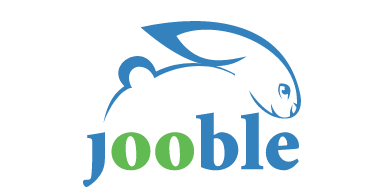Key Factors Employers Seek in Resumes
Understanding what employers look for in a resume is crucial for ensuring that your document meets their expectations and desires. Here are some essential aspects that employers pay attention to:
Font Style and Size
Choose a legible font in a reasonable size and maintain standard margins. Stick to basic fonts like Calibri, Arial, or Times New Roman with a font size of 11 or 12. Avoid using a font that is too small, as it may strain the reader's eyes. Make sure your resume is easy to read both on screen and when printed out.
Scanability
While the content of your resume is important, keep in mind that hiring managers often scan resumes quickly. They focus on keywords, job titles, and relevant facts to determine your suitability for the position. To facilitate this process, create sufficient white space between lines and in the margins, and highlight the most relevant information prominently.
Job Qualifications
Employers are primarily interested in well-qualified candidates. Demonstrate your qualifications by aligning them with the job requirements. Highlight relevant skills, such as organizational abilities and project management expertise, to showcase your fit for the role. Rather than simply listing responsibilities, emphasize your achievements, such as system improvements, cost savings, or revenue generation, to provide a clear picture of your abilities.
A Coherent Story
Make it easy for employers to understand your background by presenting a coherent story in your resume. If you have switched careers, consider omitting some early jobs or grouping them together with brief descriptions. Focus on the past 10 years of work experience unless additional experience is directly relevant to the job. Clearly connect your experience and accomplishments to the job you are applying for, emphasizing career progression and increased responsibilities.
Formatting
Resumes typically follow a traditional format and style, which employers expect. Consistency in formatting throughout the document is essential. Ensure that all the necessary information, such as contact details and education, is included. Adhere to the expected structure while presenting the content in a visually appealing manner, particularly for roles where effective communication and presentation skills are important.
Avoid These Deal-Breakers
To avoid rejection or having recruiters pass over your resume, steer clear of the following:
Typos: It can be challenging to catch your own mistakes, so consider having someone else review your resume for errors.
Poor word choices or excessive bragging: Strike a balance between showcasing your accomplishments and responsibilities without sounding overly boastful. Avoid using a thesaurus excessively, resulting in the use of unnatural or exaggerated language.
Unreadable resume: Ensure your resume is easy to read. Eliminate typos, use clear formatting, and select a legible font. If the document is difficult to read, recruiters are likely to skip it.
By addressing these key factors, you can enhance your resume's appeal to employers and increase your chances of securing an interview.
 | CV / Resume Advice to Get That Interview Advice on how to structure your CV to give you the best chance of landing an interview. |
 | How to Write an Application Cover Letter Tips on how best to approach a potential employer with your job application or resume. |
 | Handling CV Problem Areas Advice on how to handle problem areas on your CV: gaps, firings, criminal record, etc. |
 | Putting Your CV Online Placing your CV online allows employers and recruiters to headhunt you. |
 | What to Include in Your CV Tips on what information you should and should not include in your CV. |
 | What are the Easiest Jobs to get with no Experience? According to the office of National Statistics, the in the United Kingdom stood at 75.6 % from October to December 2022. This means that the rest of the population is either unemployed, unwilling to work, or retired. If you are entering the job ... |
 | The Benefits of Volunteering and How It Can Enhance Your Job Search When you're actively seeking employment, you may find yourself with extra free time in between job interviews and applications. Instead of letting that time go to waste, consider the potential benefits of volunteering. Volunteering involves work... |
 | What Employers Seek in Job Skills Job skills are the abilities, knowledge, and expertise required to effectively perform a job. They encompass competencies, talents, and capabilities that enable individuals to fulfill their duties and achieve their goals successfully. When seeki... |
 | 12 Qualities Employers Seek in Job Candidates When it comes to the hiring process, job ads often give the impression that employers are solely focused on specific types of experience. They emphasize long lists of bullet points outlining essential requirements such as years of experience wit... |
 | Strategies for Landing High-Paying Jobs and Boosting Your Paycheck Who doesn't want a bigger paycheck? It's natural to desire a job that offers substantial earning potential. In fact, according to a survey by the Society for Human Resource Management, 63% of workers consider compensation to be crucial for their... |
 | Unleashing the Power of Resume Words: Extracting Insights from Job Ads When it comes to searching for the perfect job, sometimes the key to success is right in front of us. Job ads themselves hold valuable clues about the resume words that can make a candidate stand out from the competition. Understanding how to in... |
 | Creating a Winning Resume for a Career Shift Transitioning to a new career often means convincing potential employers that your previous experience and skills are not only relevant but also valuable in a different context. A well-crafted resume is crucial in this process. This article guid... |
